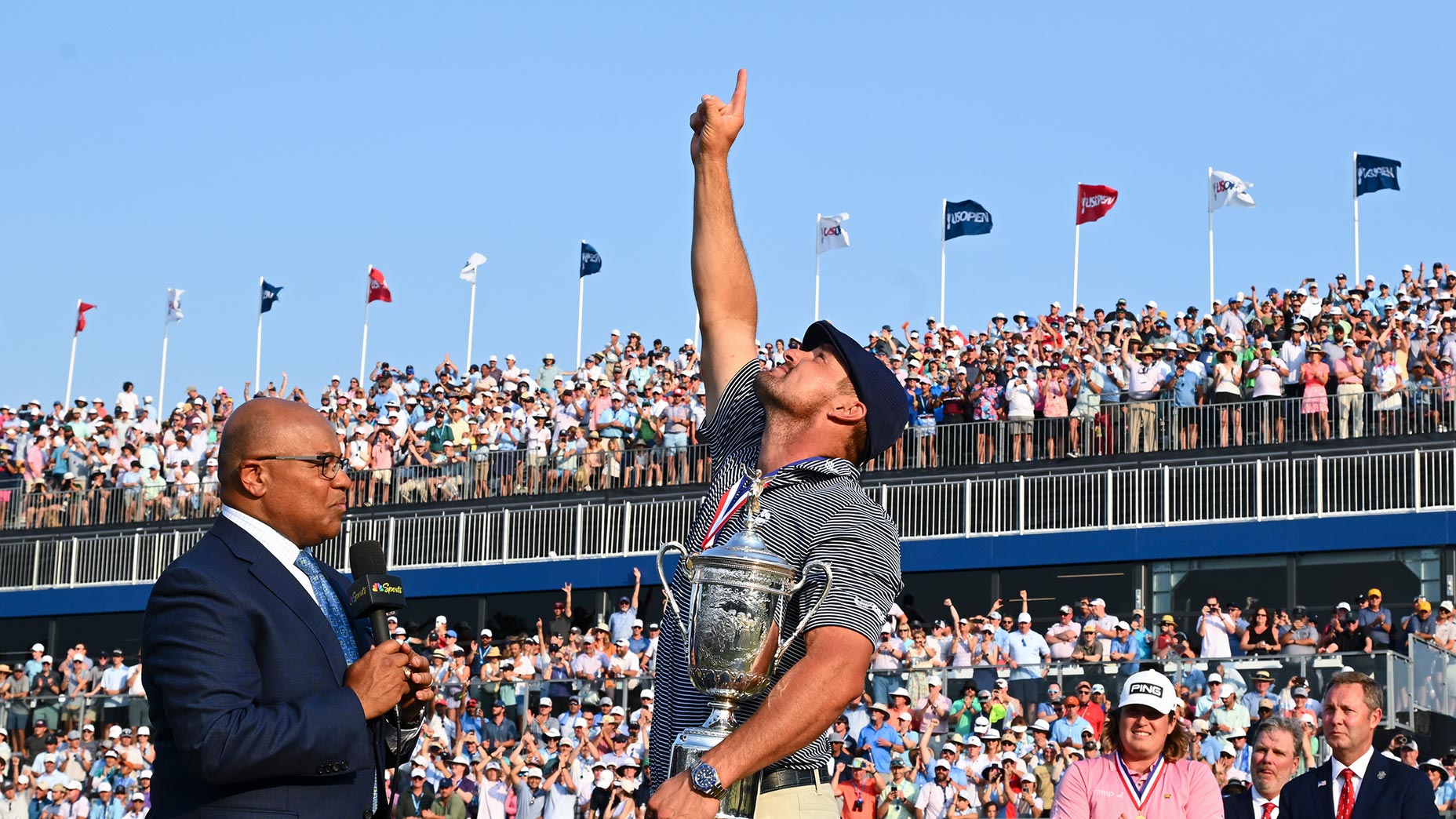If there is one capital-T truth from the U.S. Open, it’s that the golf world is more interesting with Bryson DeChambeau around.
It is why so many fans have suddenly come around him, why his YouTube channel added tens of thousands of followers this weekend, and why much of Pinehurst was rooting for him to win over Rory McIlroy come Sunday afternoon.
But interesting has a few definitions, and nowhere was that more true than Sunday evening’s U.S. Open champion’s press conference.
Bryson was in rare form from the dais at Pinehurst No. 2, speaking to the few dozen media assembled in great detail about the journey with golf, content and life that brought him to his second-career major championship. For the most part, it was some of the most compelling testimony we’ve heard from the big man in some time, particularly regarding the changes that brought him from golf outcast to toast of the proverbial town through most of the 2024 major season. But then a question came from the back of the well-air-conditioned tent that changed the tenor of the conversation.
The question asker was Mike McAllister, LIV Golf’s employed beat writer. McAllister has attended each of the majors this year as a representative for LIV, covering the action through the lens of the upstart tour. With one of the league’s founding members celebrating a major championship, it was his job to help contextualize the moment’s meaning for Bryson and the league more broadly.
“Do you think this week is a transformative week for you, your popularity, maybe the way golf will move forward now?” McAllister asked DeChambeau.
It was a fair question, but the reporter appeared to be leading the witness. In a moment prone to hyperbole, was Bryson about to declare LIV the dominant tour in professional golf? Was he about to credit LIV for his major success? Was he going to shout out LIV’s looser content restrictions for bolstering his profile?
No. As it turned out, Bryson was about to say something even more unusual. He was about to call for peace.
“If I’m to be quite frank, I hope we can figure things out quickly,” DeChambeau said, his tenor shifting. “I hope this can bridge the gap between a divided game.”
“All I want to do is entertain and do my best for the game of golf, execute and provide some awesome entertainment for the fans,” he said. “From at least what I can tell, that’s what the fans want, and they deserve that.”
A hush fell over the press room as DeChambeau spoke. The buzz from the championship moment was gone and replaced with a different kind. Bryson was talking about the biggest story in professional golf right now — the latest in a merger agreement between the Saudi PIF and PGA Tour that could forever change the shape of golf’s professional future — and he was asking for peace. Best of all: he was saying it to one of the few people in the press room who wasn’t interested in hearing it!
“You can say what’s happened in the past, you know, you were part of the reason,” DeChambeau said, acknowledging his role in golf’s division in the first place. “Let bygones be bygones and go figure it out. Let’s figure out this amazing game that creates so much positivity back to where it belongs.”
Of course, these comments were not particularly revelatory about the state of golf nor were they revealing about the shape Bryson desires for the future to take. But they made him the second key LIV player in the last few months (Jon Rahm being the first) to verbally state his desire to see a path back to a unified sport.
It goes without saying that this is an unusually precarious position for DeChambeau to take, particularly considering he was among the first golfers to drive a stake into professional golf by signing up to leave for LIV. It also goes without saying that Bryson’s words carry heavy weight on this subject, seeing as his performance this season has made him unquestionably LIV’s most compelling player.
Peace could have a lot of shapes for professional golf, but it stands to reason that Bryson factors into all of them. If the hopes of both the PIF and the PGA Tour are to make a lot of money, then it helps to have one of golf’s most interesting competitors.
And as it turns out, that might be the only definition that matters.
